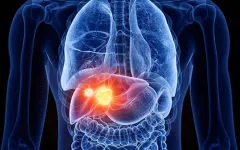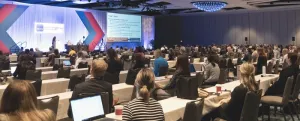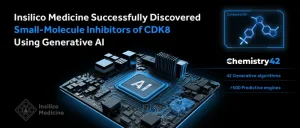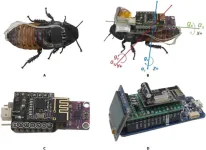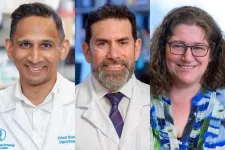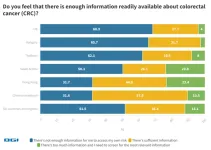(Press-News.org) Liver cancer is the third leading cause of cancer death and the sixth most common cancer type worldwide. Major risk factors include environmental and metabolic stressors, such as obesity, viral hepatitis and steatohepatitis (fatty and inflamed liver).
These stressors damage the liver by killing hepatocytes, the major cell type in the liver. The cell death then triggers an inflammatory response which signals the liver to generate a new batch of hepatocytes. But this sudden push towards cellular proliferation also increases the risk of tumor formation.
In a new study, scientists at University of California San Diego School of Medicine investigated the role of activating transcription factor 4 (ATF4), a key mediator of the liver stress response. Despite being previously associated with advanced liver cancer, the researchers found that ATF4 actually protected the liver against hepatocyte death and subsequent tumor formation. The unexpected results could now inspire new clinical strategies for preventing liver disease and cancer.
The study, published March 28, 2023 in the Journal of Hepatology, was led by senior authors Michael Karin, PhD, Distinguished Professor of Pharmacology and Pathology at UC San Diego School of Medicine and Benjamin C. Yaden, PhD, associate vice president of Diabetes Novel Therapies and External Innovation at Eli Lilly.
ATF4 levels are typically low in healthy cells, but are elevated when the cell experiences stress. To study its role in the progression of liver cancer, researchers developed a mouse model with ATF4-deficient hepatocytes. The mice were then exposed to various stressors to promote liver damage and tumor formation.
The researchers were surprised to find that ATF4-deficient mice showed more hepatocyte cell death, inflammation, compensatory cellular proliferation and accelerated liver cancer development. This suggested that ATF4 protected against liver cancer in some way.
Further experiments led by postdoctoral fellow Feng He, PhD, confirmed that ATF4 promoted the expression of SLC7A11, a protein that helps maintain hepatocyte homeostasis. SLC7A11 then helped suppress a specific type of cell death, called ferroptosis. By reducing the amount of ferroptosis, the ATF4-SLC7A11 axis protected hepatocytes and slowed the progression from liver damage to liver cancer.
“Our study suggests that ferroptosis may be the most relevant form of hepatocyte death that leads to inflammation, compensatory proliferation and cancer in the liver,” said Karin. The researchers believe ferroptosis inhibitors or ATF4 activators may be clinically useful in preventing steatohepatitis and its progression to cancer.
Co-authors of this study include: Peng Zhang and Junlai Liu at UC San Diego, Ruolei Wang at Shanghai University of Traditional Chinese Medicine and Randal J. Kaufman at Sanford Burnham Prebys Medical Discovery Institute.
# # #
END
New study flips the script on liver cancer
UC San Diego scientists find protein associated with liver cancer may actually be key to protecting against it
2023-04-12
ELSE PRESS RELEASES FROM THIS DATE:
SWOG S2302 Pragmatica-Lung study opens to enrollment, a model for easier, more representative clinical trials
2023-04-12
A clinical trial that breaks new ground with its dramatically streamlined design and unusually broad eligibility criteria is now opening and available to patients with stage 4 or recurrent non-small cell lung cancer at cancer treatment clinics all across the United States.
The S2302 Pragmatica-Lung trial, developed and led by the SWOG Cancer Research Network, a clinical trials group funded by the National Cancer Institute (NCI), is designed to be easier for institutions to open and run and with few limits on eligibility, making it available to a larger group of patients with advanced non-small cell lung ...
Researchers reveal stability origin of Dion-Jacobson 2D perovskites
2023-04-12
Yin-Yang theory is an ancient Chinese philosophy in which Yin-Yang forces are interdependent and work in opposition to each other to create balance.
Recently, inspired by this ancient theory, a research team led by Prof. GUO Xin and Prof. LI Can from the Dalian Institute of Chemical Physics (DICP) of the Chinese Academy of Sciences (CAS) has revealed the origin of the stability of Dion–Jacobson (DJ) phase two-dimensional (2D) perovskite materials.
Their findings were published in Joule on April 12.
DJ 2D perovskites, a class of organic–inorganic ...
Scientists track evolution of microbes on the skin’s surface
2023-04-12
CAMBRIDGE, MA -- Human skin is home to millions of microbes. One of these microbes, Staphylococcus aureus, is an opportunistic pathogen that can invade patches of skin affected by eczema, also known as atopic dermatitis.
In a new study, researchers at MIT and other institutions have discovered that this microbe can rapidly evolve within a single person’s microbiome. They found that in people with eczema, S. aureus tends to evolve to a variant with a mutation in a specific gene that helps it grow faster on the skin.
This study marks ...
NCCN Annual Conference brings up important questions for improving cancer care
2023-04-12
PLYMOUTH MEETING, PA [April 12, 2023] — The NCCN 2023 Annual Conference took place in-person in Orlando and virtually, with a particular focus on human connection. That connection was underscored with more than 2,000 registrants from across the continuum of cancer care, including approximately 1,000 who returned in-person for the first time since 2019. Educational sessions highlighted the importance of ensuring care meets the latest standards while also rejecting a one-size-fits-all approach.
“At NCCN, we don’t shy away from difficult discussions; we want our conference attendees to take away the message that ...
Insilico Medicine successfully discovered potent, selective, and orally bioavailable small-molecule inhibitor of CDK8 using generative AI
2023-04-12
Insilico Medicine (“Insilico”), a clinical-stage generative artificial intelligence (AI)-driven drug discovery company, today announced that it has successfully discovered a potent, selective, and orally bioavailable small molecule inhibitor of CDK8 for the treatment of cancer using a structure-based generative chemistry approach enabled by the Chemistry42 multi-modal generative reinforcement learning platform. The research was published in the American Chemical Society’s Journal of Medicinal Chemistry, a leading journal in medicinal chemistry.
As members of the CDK family, CDK8 and its paralog protein CDK19 play critical roles in regulating transcription of ...
Movement optimization for a cyborg cockroach in a bounded space incorporating machine learning
2023-04-12
Have you ever wondered why some insects like cockroaches prefer to stay or decrease movement in darkness? Some may tell you it’s called photophobia, a habit deeply coded in their genes. A further question would be whether we can correct this habit of cockroaches, that is, moving in the darkness just as they move in bright backgrounds. Scientists from Osaka University may have answered this question with a positive answer. They solved this question by converting a cockroach into a cyborg. They published this research in the journal Cyborg and Bionic Systems. ...
SwRI joins new NASA institute to qualify, certify additive manufacturing methods
2023-04-12
SAN ANTONIO — April 12, 2023—Southwest Research Institute will contribute to a new NASA institute to improve understanding and enable rapid certification of metal parts created using advanced additive manufacturing (AM) techniques. The Institute for Model-based Qualification & Certification of Additive Manufacturing (IMQCAM) will work to improve computer models of additively manufactured metal parts and expand their utility in spaceflight applications.
Additive manufacturing uses 3D printing or rapid prototyping to build ...
Memorial Sloan Kettering Cancer Center experts to present noteworthy research at the American Association for Cancer Research (AACR) 2023 Annual Meeting
2023-04-12
Physicians and scientists from Memorial Sloan Kettering Cancer Center (MSK) will join oncology experts and members of the global cancer research community to present the latest advances in cancer during the American Association for Cancer Research (AACR) Annual Meeting on April 14-19 in Orlando, Florida.
MSK experts will present significant research and will be available to comment on topics including cancer disparities, analytical tools for precision medicine, genomic biomarkers, tumor biology, immunology and more.
Deb Schrag, MD, MPH, will offer insights ...
Noted MS neurologist Dr. Roland Martin wins 2023 John Dystel Prize for Multiple Sclerosis Research
2023-04-12
Roland Martin, MD, a world-class neurologist and investigator, is the winner of the 2023 John Dystel Prize for MS Research. He is being honored for advancing our understanding of immune mechanisms underlying multiple sclerosis and translating them to develop innovative strategies to treat the disease.
Martin uncovered how key MS susceptibility genes are involved in launching immune attacks on the nervous system and identified specific components of nerve-insulating myelin that are targeted by those attacks. His team has developed an experimental therapy designed to make ...
62 percent of Thais lack sufficient colorectal cancer awareness | BGI Insight
2023-04-12
Colorectal cancer (CRC) is the fourth most common cancer and accounts for 11% of the cancer burden in Thailand in 2020, with over 21,000 new CRC cases annually, and stage III and IV CRC account for up to 70%–80% of overall CRC cases, according to the Society of Colorectal Surgeons of Thailand.
This report indicates Thailand has a high percentage of respondents (62.1%) who feel they lack CRC information to assess their risk, far higher than global average of 51.5%. In addition, 48.2% of Thais say that cost concerns are holding them back from CRC screening, way higher than global average of ...
LAST 30 PRESS RELEASES:
Natural selection operates on multiple levels, comprehensive review of scientific studies shows
Developing a national research program on liquid metals for fusion
AI-powered ECG could help guide lifelong heart monitoring for patients with repaired tetralogy of fallot
Global shark bites return to average in 2025, with a smaller proportion in the United States
Millions are unaware of heart risks that don’t start in the heart
What freezing plants in blocks of ice can tell us about the future of Svalbard’s plant communities
A new vascularized tissueoid-on-a-chip model for liver regeneration and transplant rejection
Augmented reality menus may help restaurants attract more customers, improve brand perceptions
Power grids to epidemics: study shows small patterns trigger systemic failures
Computational insights into the interactions of andrographolide derivative SRJ09 with histone deacetylase for the management of beta thalassemia
A genetic brake that forms our muscles
CHEST announces first class of certified critical care advanced practice providers awarded CCAPP Designation
Jeonbuk National University researchers develop an innovative prussian-blue based electrode for effective and efficient cesium removal
Self-organization of cell-sized chiral rotating actin rings driven by a chiral myosin
Report: US history polarizes generations, but has potential to unite
Tiny bubbles, big breakthrough: Cracking cancer’s “fortress”
A biological material that becomes stronger when wet could replace plastics
Glacial feast: Seals caught closer to glaciers had fuller stomachs
Get the picture? High-tech, low-cost lens focuses on global consumer markets
Antimicrobial resistance in foodborne bacteria remains a public health concern in Europe
Safer batteries for storing energy at massive scale
How can you rescue a “kidnapped” robot? A new AI system helps the robot regain its sense of location in dynamic, ever-changing environments
Brainwaves of mothers and children synchronize when playing together – even in an acquired language
A holiday to better recovery
Cal Poly’s fifth Climate Solutions Now conference to take place Feb. 23-27
Mask-wearing during COVID-19 linked to reduced air pollution–triggered heart attack risk in Japan
Achieving cross-coupling reactions of fatty amide reduction radicals via iridium-photorelay catalysis and other strategies
Shorter may be sweeter: Study finds 15-second health ads can curb junk food cravings
Family relationships identified in Stone Age graves on Gotland
Effectiveness of exercise to ease osteoarthritis symptoms likely minimal and transient
[Press-News.org] New study flips the script on liver cancerUC San Diego scientists find protein associated with liver cancer may actually be key to protecting against it
